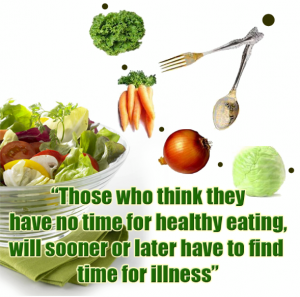 So why do we need FOOD? Well simply, food provides the body with energy in the form of calories, not just for physical exercise but for every single bodily function – breathing, repair, growth etc. Now food can be sub divided in to Micro nutrients which include vitamins and minerals and Macro nutrients which include carbohydrate, protein and fat.
So why do we need FOOD? Well simply, food provides the body with energy in the form of calories, not just for physical exercise but for every single bodily function – breathing, repair, growth etc. Now food can be sub divided in to Micro nutrients which include vitamins and minerals and Macro nutrients which include carbohydrate, protein and fat.
Bar a few exceptions (such as olive oil and sugar) most food that we eat is made up of a combination of carbohydrate, protein and fat. For simplicity let us look at each in turn:
1) Carbohydrates – there are 2 main groups Simple sugars and Starches. Simple sugars such as glucose, galactose and fructose are the simplest form and thus the easiest to break down for energy. These simple sugars can be combined to form slightly more complex sugars such as lactose and sucrose and can be found in honey and sugar. Starches on the other hand are more complex being made up of very long chains of glucose and these are found in foods such as breads, cereals, rice and potatoes. Now sugars can obviously be found naturally such as in fruit but the real problem is with added sugar! The average person consumes a staggering 34 teaspoons of sugar per day. When you realise that a slice of white pan bread contains 3 teaspoons and a can of coke contains 10 teaspoons it is easy to see how this figure mounts up! And what is worse is that sugar is as addictive as heroin and nicotine! No wonder we have all these cravings!
2) Proteins – are made up of different amino acids and their main job is for repair and construction. But proteins also help with satiety – that feeling of fullness and they provide the body with energy. And the key with any healthy eating and exercise programme is to balance protein synthesis with protein breakdown so that you develop or at least maintain lean muscle mass. Too many people embark on a healthy routine only to get injured by simply not eating enough protein. No doubt many of you are nodding your heads from experience!
3) Fats – are made up of fatty acids and their main purpose is for to provide and to store energy. However they also help the body to absorb fat soluble vitamins A,D, E and K; they provide insulation; they are essential for brain and nerve function; they also add to satiety and they carry flavour! Fat is what makes food tasty! Now because fats have been so wrongly vilified for so long we need to look at them in a little more detail. All foods that contain fat contain a mixture of saturated, monounsaturated and polyunsaturated fats. And contrary to popular belief saturated fats are actually essential for our health as we will see in due course. Monounsaturated fats are found in high quantities in olive oil. Polyunsaturated fats include the essential fatty acids omega 3 and omega 6. They are called essential because it is essential that we include them in our diets as our bodies cannot make them. Now as with most things too much of a good thing can actually be bad for you and that is certainly the case with Omega 6 EFA (essential fatty acid). In large quantities Omega 6 EFA is pro inflammatory, in other words it causes inflammation and sadly the majority of our diets are toxic in the amount of Omega 6 that we consume. Ideally the ratio of Omega 6 : omega 3 should be at about 1 : 1 or at the least 2 : 1. Sadly the majority of people are between 20 to 40 : 1. No wonder why we are getting sicker then! So one thing we need to do is limit the amount of Omega 6 EFA and we can do this by avoiding vegetable oils (sunflower, peanut, corn, safflower etc; Sunflower oil for example contains 65% Omega 6 EFA) and by increasing our intake of Omega 3 EFA by taking a Fish oil supplement. As a side note whilst Flaxseed oil and the like contain large quantities of Omega 3 EFA our bodies cannot digest and access them so they are not a good source! Keep to the Fish oil!
The final group of fats are the really bad guys and these are the Transfatty acids (or aptly named Frankenfats) which are fats that have been chemically modified. Their side effects are numerous from causing inflammation and contributing to heart disease and cancer and sadly they are to be found in over 40% of all foods in your local supermarket. Any food that has been processed will undoubtedly contain transfatty acids so another reason to avoid processed food!
As we mentioned the main purpose of food is to provide energy in the form of calories and contrary to popular belief fat is actually the greatest source of energy providing 9 calories of energy per one gram of fat, compared with 4 calories for both carbohydrates and protein! More to come…………….!
